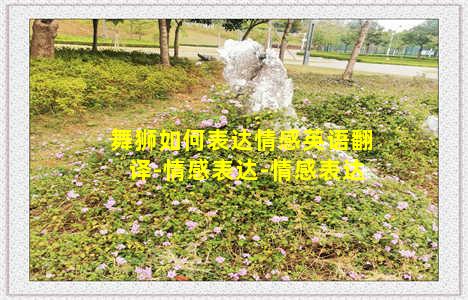
Lion dancing, a traditional Chinese performance art, is often associated with vibrant colors, energetic movements, and thunderous drumming. However, beyond the surface spectacle, lion dancing also serves as a unique medium for expressing emotions, ranging from joy and hope to fear and determination.
One of the most evident and universal emotions conveyed in lion dancing is happiness. The lively music, playful interactions between the lions and the performers, and the vibrant atmosphere of a lion dance parade all exude an infectious joy that is palpable to the audience. The lions themselves, with their whimsical expressions and comical gestures, seem to embody the carefree spirit of childhood, inviting both laughter and admiration.
However, the emotional range of lion dancing extends far beyond mere happiness. A skilled lion dancer can use subtle movements and gestures to convey a plethora of emotions, often without uttering a word. For instance, a lion's slow and graceful movements may signify reverence and solemnity, as in a traditional lion dance at a temple or a funeral. On the other hand, fast and aggressive movements, accompanied by ferocious roars and growls, can evoke a sense of fear and awe, as in a martial arts-inspired "Kung Fu" lion dance. The dancers themselves can also express emotions through their body language and facial expressions, whether it is the determination of a young lion who struggles to climb a high pole or the gratitude of a performer who bows deeply to the audience after a successful performance.
Moreover, lion dancing can also serve as a way to convey cultural and historical emotions. For instance, lion dancing has played a critical role in celebrating Chinese cultural identity, particularly during times of hardship and discrimination. During the late 19th and early 20th century, when Chinese immigrants faced xenophobic policies and violent attacks in the United States, lion dancing became a form of resistance and pride for the Chinese American community. The lions, with their ferociousness and indomitability, symbolized the resilience and dignity of the Chinese people, inspiring generations of Chinese Americans to fight for justice and equality.
In conclusion, lion dancing is not merely a form of entertainment, but a rich and diverse cultural expression that reflects the emotional complexity of human experience. Whether it is through the carefree joy of a playful lion or the solemn reverence of a spiritual lion dance, the art of lion dancing allows us to connect with our emotions and with each other beyond the boundaries of language and culture.
